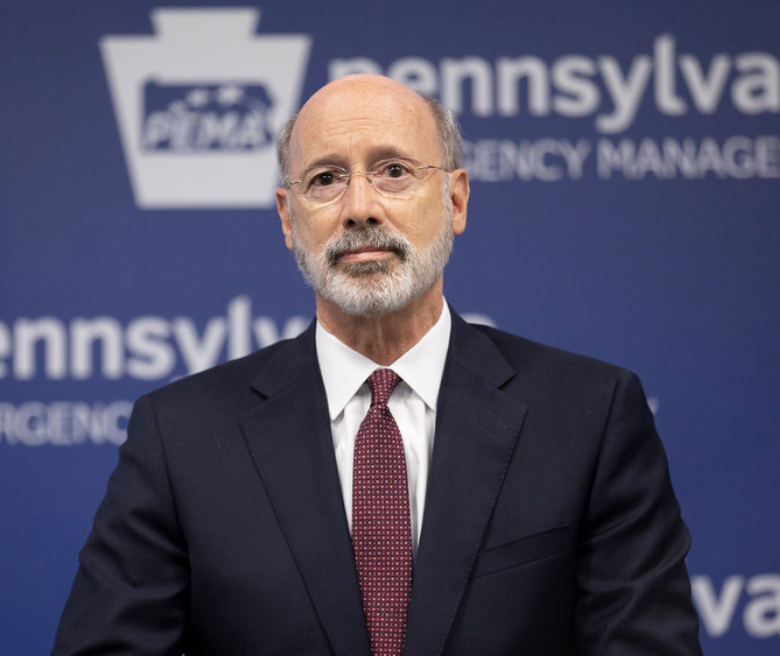Pennsylvania is a step closer to exiting the Regional Greenhouse Gas Initiative (RGGI). A bill repealing the carbon tax portion of RGGI passed the state Senate by a 27 to 22 vote on Tuesday.
“It is time to repeal this regulation and focus on putting forth commonsense, environmentally responsible energy policy that recognizes and champions Pennsylvania as an energy producer,” said Sen. Gene Yaw (R-Bradford).
In 2019, then-Gov. Tom Wolf (D) refused to take the question of RGGI membership to the GOP-controlled legislature, instead issuing an executive order putting the state in the compact. Critics of Wolf’s actions said it was both bad for Pennsylvania ratepayers and undermined the democratic process.
RGGI requires fossil fuel power plants with capacity greater than 25 megawatts to obtain an allowance for each ton of carbon dioxide they emit annually. Power plants within the region may comply by purchasing allowances from quarterly auctions, other generators within the region, or offset projects. The costs of those allowances are passed on to ratepayers.
Various Commonwealth Court rulings prevented Pennsylvania from implementing Wolf’s unilateral action. Last November, justices called it an “invalid tax” because the state legislature never passed a bill that authorized RGGI. An appeal before the state Supreme Court is pending.
The RGGI program was so unpopular in Pennsylvania that Democratic Gov. Josh Shapiro avoided taking a stance on it during his 2022 campaign. He attempted an end-around RGGI this spring by proposing an alternative, the Pennsylvania Climate Emissions Reduction Act (PACER). That would have created a cap-and-trade program run by Pennsylvania regulators. No hearings were ever held and the PACER proposal is believed dead.
RGGI could suffer a similar fate if the Democratic-controlled state House approves the carbon tax repeal.
Sen. Kim Ward (R-Westmoreland) pushed Democrats, including Shapiro, to support the RGGI repeal. She said Pennsylvania would see electricity bills rise 30 percent and see 22,000 jobs lost if RGGI ever became law.
“Our focus should be on unleashing our commonwealth’s energy potential to strengthen Pennsylvania’s economy now and for the future,” she said.
House Republicans agree. During a Policy Committee meeting on Tuesday, members heard testimony from energy executives and advocates who said the state’s convoluted permitting structure caused it to lose out on business.
While the Keystone State produces about 30 percent of the electricity for the PJM power grid it could be much higher, according to Jeff Nobers of Pittsburgh Works Together. The group is a coalition of labor and business executives focused on the economy. The PJM grid covers Pennsylvania and 12 other states plus Washington, D.C.
He put the blame on state and federal regulations. Nobers argued the current rules tangle together and run at cross purposes. That caused growth to stall. “We need to develop a rational, realistic, data-driven comprehensive policy that accounts for the constraints of the real world,” he said.
Energy executives complained Pennsylvania’s current permitting structure hampered development. Michael Hillebrand, president and CEO of Huntley & Huntley told the committee it takes years for companies to go through the permitting process. He said in Texas, the nation’s top natural gas producer, it takes about a week for the permitting process to be finalized.
“Every Mission: Impossible goal that [Pennsylvania] could put on top of it to mess it up, we have done,” lamented Hillebrand.
Last year, Shapiro signed an executive order he said would modernize the permit application effort.
But Rep. Josh Kail (R-Beaver) said Shapiro had the power to do more through another executive order. “It’s his mess,” he said.
Kail urged Shapiro to tell state agencies to approve permits within 30 days or people would lose their jobs. He pointed to a hearing held last year where the Pennsylvania Department of Transportation complained about the state Department of Environmental Protection permitting process.
“We recognize that it is a serious problem and it will be a top agenda item once we retake the majority (in the House after the November election),” he promised.
Shapiro spokesperson Manuel Bonder told DVJournal the governor wants to protect and create clean energy jobs and address climate change.
“The governor has made clear that inaction on this key issue is not an option, and instead of wasting time on messaging bills, his administration will remain focused on actual solutions and delivering real results for Pennsylvania communities,” said Bonder.
Please follow DVJournal on social media: X@DVJournal or Facebook.com/DelawareValleyJournal

